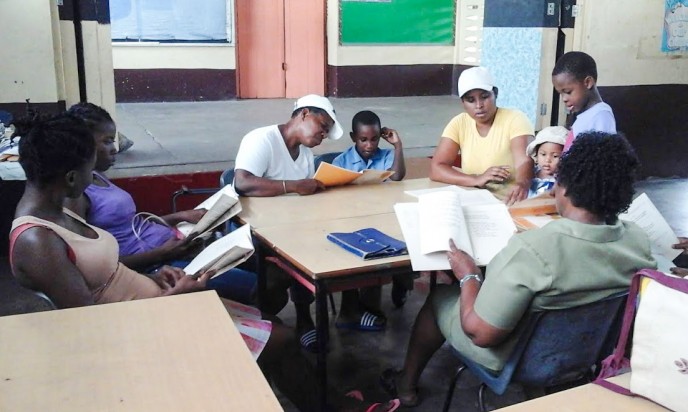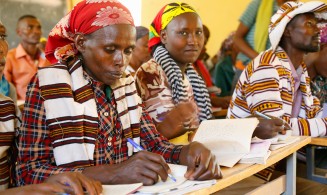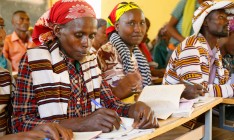

A fellow’s success story – Ms Gertrude Niles: Grenada introduces family learning to enhance basic education
fellow_success_story_grenada_2019-05-30.jpg

The Ministry of Education, Human Resource Development and Religious Affairs in Grenada has for this fiscal year adopted a concept and budget for the implementation of the ‘Grenada Family Education Project’. This strategy aims to advance literacy among disadvantaged families through intergenerational learning. As of 2019, fifty facilitators have been recruited and trained, and learning centres in four out of the seven regions in Grenada have implemented the project, reaching the first 250 households. The project has also been instrumental in increasing awareness of the importance of literacy and serves as a platform for the advocacy of non-formal education in the country.
The concept for the Grenada Family Education Project was introduced by Ms Gertrude Niles, a literacy coordinator in the Adult and Lifelong Learning Unit at the Grenada Ministry of Education, Human Resource Development and Religious Affairs. In 2016, she participated in the CONFINTEA Fellowship Programme at UIL, where she worked on a strategy geared towards equitable access to education for marginalized populations through family learning. For the Grenada initiative, facilitators conduct trainings in the learning centres and in families’ homes, teaching parents how to read and showing them how they can assist their children with reading. Within this process, parents’ desire to support their children is used to motivate their own learning, while also reinforcing their engagement in their children’s education.
Following its adoption by the Ministry of Education, Human Resource Development and Religious Affairs, the strategy was communicated to the Ministry of Social Development, the national stakeholders responsible for primary and secondary schools and the parent-teacher associations (PTA) in the country. The implementation of the project has reinforced national coordination and collaboration, as well as governance of adult learning and education stakeholders. Most importantly, it has helped to promote learning across generations and in various contexts.
Ms Niles recounts: ‘The CONFINTEA Fellowship Programme enhanced my professional growth in the field of adult education and lifelong learning. It also afforded me exposure to a wide range of adult learning strategies. Upon my return to Grenada, I helped guide the training of new facilitators for 25 learning centres, introducing the new family learning concept.’
To ensure that the project is sustainable, monthly supervision meetings for sharing best practice and discussing challenges and solutions are held. Grenada’s remaining three regions are scheduled to receive technical assistance to implement the project by the end of this year.
From 2011 to 2017, UIL welcomed 38 fellows (19 men and 19 women, 31 of whom were government officials and 7 NGO representatives) from 32 countries. The last cycle was organized in November 2017.







